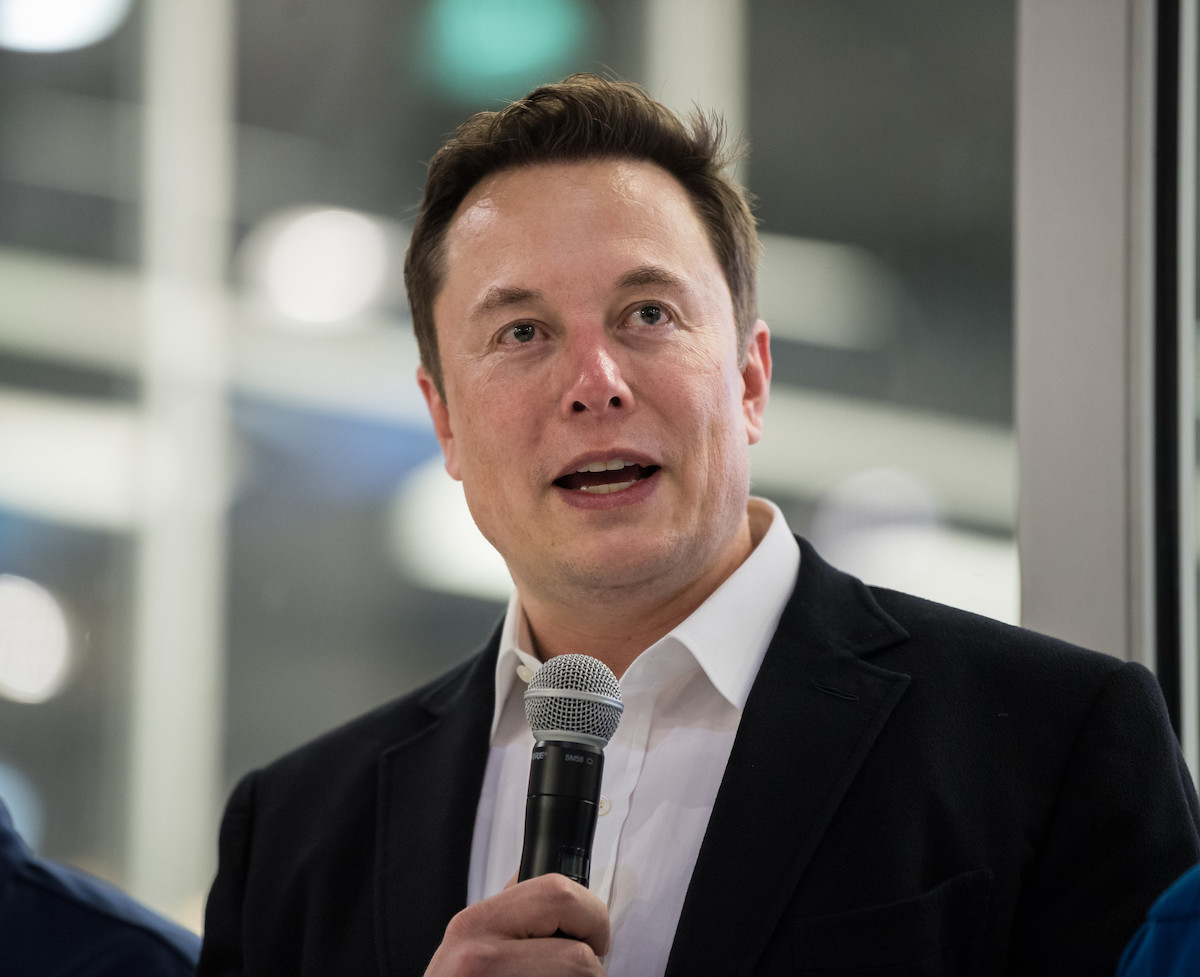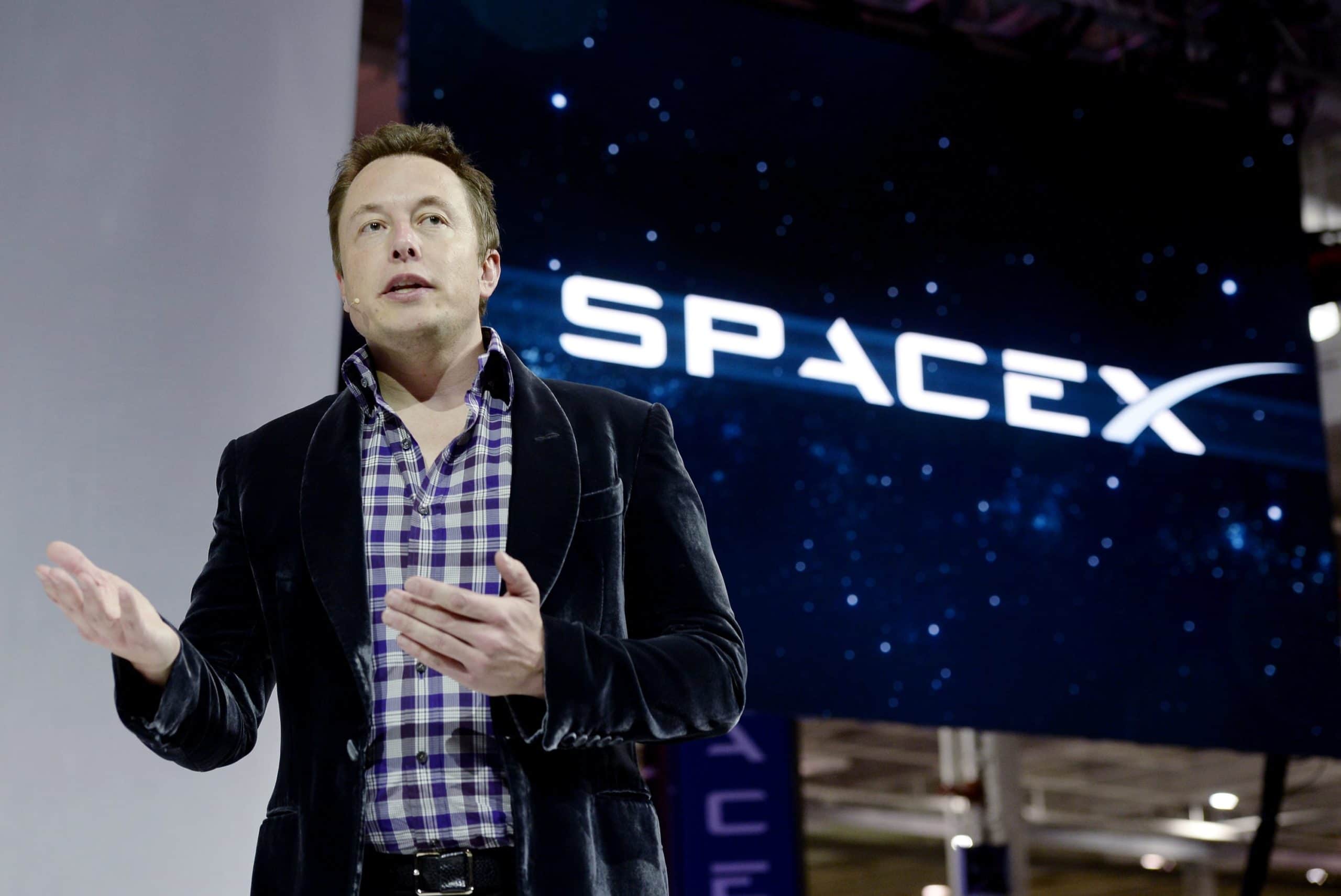When we talk about SpaceX, we're not just talking about a company; we're talking about a revolution in space exploration. Elon Musk, the SpaceX owner, has transformed how we think about space travel and sustainability. His vision extends beyond Earth, daring to dream of colonizing Mars and making humanity a multiplanetary species. But who exactly is this mastermind behind one of the most groundbreaking ventures of our time? Let's dive into the life, achievements, and ambitions of Elon Musk, the man who owns SpaceX.
Elon Musk isn’t your average billionaire. He’s a disruptor, a dreamer, and someone who doesn’t shy away from challenges. From founding PayPal to revolutionizing electric cars with Tesla, Musk has always been ahead of the curve. But owning SpaceX represents more than just another notch in his belt—it’s a testament to his relentless pursuit of innovation.
SpaceX, short for Space Exploration Technologies Corp., isn’t just a business venture; it’s a mission. The company aims to reduce space transportation costs and enable the colonization of Mars. And at the helm of this ambitious project is Elon Musk, a name that resonates with vision and audacity. So, let’s explore what makes him tick and why he’s such a pivotal figure in the modern era of space exploration.
Read also:Remoteiot Vpc Review Raspberry Pi The Ultimate Guide For 2023
Biography of SpaceX Owner Elon Musk
Before we dive into the intricacies of SpaceX, it's essential to understand the man behind the curtain. Elon Musk was born on June 28, 1971, in Pretoria, South Africa. Raised by his mother, Maye Musk, a model and dietitian, and his father, Errol Musk, an electromechanical engineer, Elon grew up surrounded by creativity and intellectual curiosity. From an early age, he displayed an insatiable appetite for knowledge, devouring books on science, technology, and philosophy.
Early Life and Education
Elon Musk’s journey to becoming the SpaceX owner began in Pretoria, where he spent his formative years. As a child, he was deeply fascinated by computers and programming. At just 12 years old, he created and sold his first video game, Blastar, for $500—a remarkable feat that hinted at his entrepreneurial spirit. After moving to Canada to attend Queen’s University, Musk transferred to the University of Pennsylvania, where he earned degrees in physics and economics.
Entrepreneurial Ventures Before SpaceX
Before founding SpaceX, Elon Musk had already made waves in the tech world. He co-founded Zip2, a company that provided business directories and maps for newspapers. After Compaq acquired Zip2 for $307 million in 1999, Musk moved on to launch X.com, which later became PayPal. When eBay purchased PayPal for $1.5 billion in 2002, Musk found himself with the financial resources and experience to pursue his true passion: space exploration.
The Birth of SpaceX
With the funds from PayPal’s sale and a burning desire to make humanity a multiplanetary species, Elon Musk founded SpaceX in 2002. His goal was ambitious: to develop reusable rockets that would drastically reduce the cost of space travel. At the time, many dismissed his vision as unrealistic, but Musk was undeterred. Through sheer determination and innovation, SpaceX has become a cornerstone of modern space exploration.
Key Milestones in SpaceX History
- In 2008, SpaceX became the first privately funded company to send a liquid-fueled rocket into orbit.
- In 2012, the Dragon spacecraft became the first commercial vehicle to visit the International Space Station (ISS).
- In 2015, SpaceX achieved the historic first landing of an orbital rocket booster.
- In 2020, SpaceX launched astronauts to the ISS aboard the Crew Dragon, marking the first crewed orbital flight by a private company.
Elon Musk’s Vision for the Future
As the SpaceX owner, Elon Musk envisions a future where humanity is no longer confined to Earth. His ultimate goal is to establish a self-sustaining city on Mars within the next few decades. To achieve this, SpaceX is developing the Starship, a fully reusable spacecraft designed to carry large payloads and humans to the Red Planet. This vision extends beyond exploration; it’s about ensuring the survival of our species in the face of potential global catastrophes.
Read also:Syd Kitson Net Worth The Untold Story Of Success Wealth And Impact
Challenges and Controversies
While Elon Musk’s ambitions are admirable, they haven’t come without challenges. Critics have raised concerns about the environmental impact of rocket launches and the feasibility of colonizing Mars. Additionally, Musk’s outspoken nature and unconventional management style have sparked debates about leadership and corporate governance. Despite these controversies, Musk remains undeterred, focusing on the bigger picture of humanity’s future in space.
SpaceX’s Impact on the Space Industry
SpaceX has revolutionized the space industry by proving that private companies can achieve what was once thought possible only by government agencies. By developing reusable rockets, SpaceX has significantly reduced the cost of space travel, making it more accessible for scientific research, commercial ventures, and even tourism. This paradigm shift has inspired a new generation of space entrepreneurs and paved the way for a thriving commercial space economy.
Economic Benefits of SpaceX
- Reduced launch costs have opened doors for smaller companies to participate in space exploration.
- SpaceX has created thousands of high-paying jobs, contributing to local economies.
- The company’s innovations have spurred advancements in aerospace technology, benefiting industries beyond space travel.
Elon Musk’s Other Ventures
While SpaceX remains one of Elon Musk’s most ambitious projects, he’s also involved in numerous other ventures. Tesla, the electric car manufacturer, has revolutionized the automotive industry with its cutting-edge technology and sustainable energy solutions. The Boring Company aims to alleviate traffic congestion by building underground tunnels, while Neuralink focuses on developing brain-computer interfaces. These ventures, like SpaceX, reflect Musk’s commitment to pushing the boundaries of what’s possible.
How These Ventures Complement SpaceX
Musk’s diverse portfolio of companies often complements each other. For instance, Tesla’s advancements in battery technology can be applied to space missions, while The Boring Company’s tunneling expertise might one day aid in constructing habitats on Mars. This interconnected approach highlights Musk’s holistic vision for the future.
Elon Musk’s Leadership Style
As the SpaceX owner, Elon Musk is known for his hands-on approach to leadership. He’s not afraid to roll up his sleeves and dive into the technical details, often working alongside engineers and technicians. This involvement fosters a culture of innovation and accountability within the company. However, his demanding expectations and long work hours have also drawn criticism from some employees.
Lessons in Leadership from Elon Musk
- Set audacious goals and inspire others to believe in them.
- Encourage a culture of experimentation and learning from failure.
- Lead by example and demonstrate a deep understanding of your industry.
- Balance vision with execution, ensuring that long-term goals are supported by short-term achievements.
Data and Statistics Supporting SpaceX’s Success
SpaceX’s achievements are backed by impressive data. As of 2023, the company has conducted over 200 successful rocket launches, with a success rate exceeding 98%. The Falcon 9 rocket, SpaceX’s workhorse, has been instrumental in this success, enabling the deployment of thousands of satellites and facilitating numerous ISS resupply missions. These accomplishments have solidified SpaceX’s position as a leader in the space industry.
Comparing SpaceX to Competitors
- SpaceX’s reusable rockets have reduced launch costs by up to 90% compared to traditional expendable rockets.
- The company’s rapid launch cadence outpaces that of its competitors, allowing it to capture a larger share of the commercial space market.
- SpaceX’s commitment to innovation has kept it ahead of rivals like Boeing and Blue Origin in terms of technological advancements.
Elon Musk’s Personal Life
Beyond his professional achievements, Elon Musk leads a fascinating personal life. He’s been married three times and has eight children, including twins and triplets. Despite his busy schedule, Musk remains deeply involved in his family life, often sharing glimpses of his personal world on social media. This balance between work and family showcases his multifaceted personality.
Biodata of Elon Musk
| Full Name | Elon Reeve Musk |
|---|---|
| Date of Birth | June 28, 1971 |
| Place of Birth | Pretoria, South Africa |
| Education | University of Pennsylvania (Physics and Economics) |
| Net Worth | Approx. $250 billion (as of 2023) |
Conclusion: Why Elon Musk Matters
In conclusion, Elon Musk, the SpaceX owner, isn’t just a businessman; he’s a visionary who’s shaping the future of humanity. Through his leadership and innovation, SpaceX has transformed the space industry, making it more accessible and sustainable. Whether it’s reducing launch costs, developing reusable rockets, or dreaming of colonizing Mars, Musk’s contributions have left an indelible mark on our world.
I encourage you to share this article with others who share your passion for space exploration and innovation. By spreading awareness about the groundbreaking work of SpaceX and its visionary owner, we can inspire the next generation of dreamers and doers. And remember, the sky is no longer the limit—thanks to Elon Musk, the possibilities truly are infinite.
Table of Contents
Biography of SpaceX Owner Elon Musk
Entrepreneurial Ventures Before SpaceX
Key Milestones in SpaceX History
Elon Musk’s Vision for the Future
SpaceX’s Impact on the Space Industry
Lessons in Leadership from Elon Musk
Data and Statistics Supporting SpaceX’s Success


